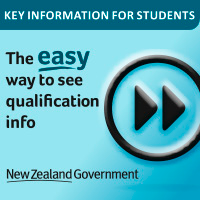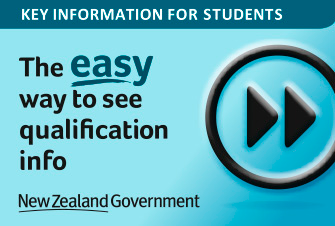Programme overview
The way we experience music is changing. Streaming services and similar new technologies have opened up an array of opportunities for musicians. The BDes/BMus conjoint is positioned to help musicians capitalise on the possibilities presented by new markets.
Within the BMus, you will choose to specialise in creative practice: classical; jazz; composition; popular music; or music studies. Your BDes courses will encourage you to research, design and test new ideas that support and extend contemporary music culture.
You will have the opportunity to become a well-rounded musician, competent in innovative thinking, responsiveness and collaboration. These qualities are highly valued in many industries. Equally, a designer with complementary skills in music and sound is especially sought-after in emerging 360 film and television experiences and the burgeoning fields of augmented and virtual reality.
Programme structure
The BDes/BMus usually takes four years to complete.
You will need to complete 540 points, consisting of:
- 255 points from BDes courses:
- 165 points BDes core courses
- 90 points BDes elective courses
- 255 points from BMus courses
- 15 points from General Education
- 15 points from courses available for any programme
For your BMus component, the majority of your courses are prescribed. Find out about the music specialisations you can study in your BDes/BMus:
- Creative Practice: Classical
- Creative Practice: Composition
- Creative Practice: Jazz
- Creative Practice: Popular Music
- Music Studies
In your Design component, alongside design foundation courses and studio practice, you will build your own study plan of six elective courses from our four design themes:
- Design and Local Community Practices
- Design and Global Challenges
- Design and Business
- Design and Emerging Technologies
In your final year, you will undertake a capstone design research project, working from the initial discovery phase right through to testing and implementation.
You will probably enrol in nine 15-point courses (135 points) each year if you want to complete in four years. You need to maintain a Grade Point Average of 3.5 each year to continue with your conjoint.
Most students need to take one or two General Education courses.
Students should also be aware of the University’s Academic English Language Requirement.
Subjects available in this programme
- Creative Practice: Classical
- Creative Practice: Composition
- Creative Practice: Jazz
- Creative Practice: Popular Mus
- Design
- Music Studies
2024 entry requirements
My highest qualification is from:
Secondary school qualifications
If you're joining us from secondary school, here's what you need to enter the programme.
You are guaranteed entry to this programme if you meet these requirements.
- First, you must meet the University Entrance (UE) standard.
- You must also meet the rank score for this programme. Not sure about your rank score? Use our rank score calculator.
- You may need to have studied certain subjects or achieved credits in particular subjects.
- Some programmes have additional requirements, such as an interview, portfolio or references.
Guaranteed rank score, subject and other requirements
If your rank score is slightly lower than the guaranteed score, we encourage you to still apply. We will consider your application if places are available. If you don’t meet the requirements, you may be able to apply under our Undergraduate Targeted Admission Schemes.
-
QualificationNCEA National Certificate of Educational AchievementScore required210
- 16 credits in one subject from Table A
- 16 credits in one subject from Table B
-
QualificationCIE Cambridge International ExaminationsScore required230
- One subject from Table A
- One subject from Table B
-
QualificationIB International BaccalaureateScore required28
Read more about entry requirements for New Zealand secondary school applicants.
Further requirements
Selection into the BDes/BMus programme will be based on your academic history and, for Creative Practice music specialisations only, on the strength of your audition or portfolio. (A specialisation in Music Studies has no audition or portfolio requirements.)
View the audition or portfolio requirements for your chosen Creative Practice specialisation:
Tertiary qualifications
If you've studied at a tertiary institution, here's what you need to enter the programme.
You can transfer from another tertiary institution, or another University of Auckland qualification, if you meet these requirements.
Minimum grade requirements
These are the likely grades required, but they do not guarantee entry. Applicants may require higher grades to gain entry to this programme.
-
Grade requiredGPA Grade Point Average 3.9
-
Grade requiredGPE Grade Point Equivalent 3.9
Further requirements
Selection into the BDes/BMus programme will be based on your academic history and, for Creative Practice music specialisations only, on the strength of your audition or portfolio. (A specialisation in Music Studies has no audition or portfolio requirements.)
View the audition or portfolio requirements for your chosen Creative Practice specialisation:
Other pathways to study
You could be eligible for another programme, or check out these alternative pathways:
- See if you meet the criteria for the Undergraduate Targeted Admission Scheme (UTAS).
- Bridge your educational gap with a preparation and foundation programme.
- If you are under 20, have no formal University Entrance (UE) qualification, and are a New Zealand or Australian citizen or permanent resident you can apply for discretionary entrance.
- If you can demonstrate outstanding academic achievement and maturity, we offer admission to applicants under 16.
My highest qualification is from this country or region:
Secondary school qualifications
If you're joining us from secondary school, here's what you need to enter the programme.
You need to have one of the following:
- International Baccalaureate Diploma with a minimum total score of 24.
- General Certificate of Education (GCE) Advanced Level. You must have completed a minimum of three A-Level subjects.
- Cambridge International Examinations (CIE). You must have completed a minimum of three A-level subjects.
GCE ‘A’ Level requirements apply to ‘A’ Level qualifications examined by bodies such as AQA, OCR, Edexcel, WJEC, CCEA and Pearson Education Limited taken outside of New Zealand.
Minimum grade, subject and other requirements
Minimum requirements listed here are the likely grades required and do not guarantee entry. We assess each application individually and applicants may require a higher grade to be offered a place. Your CIE/GCE A level score is calculated on the best three academic subjects and General Studies cannot be included.
-
QualificationIB International Baccalaureate DiplomaScore required28QualificationIELTS Academic International English Language Testing SystemScore required6.0
No bands less than 5.5
-
QualificationGCE A Level/CIE General Certificate of Education (GCE) Advanced LevelScore requiredBBCQualificationIELTS Academic International English Language Testing SystemScore required6.0
No bands less than 5.5
Further requirements
Selection into the BDes/BMus programme will be based on your academic history and, for Creative Practice music specialisations only, on the strength of your audition or portfolio. (A specialisation in Music Studies has no audition or portfolio requirements.)
View the audition or portfolio requirements for your chosen Creative Practice specialisation:
Tertiary qualifications
If you've studied at a tertiary institution, here's what you need to enter the programme.
You can transfer from another tertiary institution if you meet these requirements.
You need to have the following:
One year successful bachelor-degree level study at a recognised university (or similar institution) overseas.
Guaranteed grade requirements
These are the grades required for guaranteed entry to this programme. If your grades are slightly lower, we encourage you to still apply. We will consider your application if places are available.
-
Grade requiredGPE Grade Point Equivalent 3.9
-
QualificationIELTS Academic International English Language Testing SystemScore required6.0
No bands less than 5.5
Further requirements
Selection into the BDes/BMus programme will be based on your academic history and, for Creative Practice music specialisations only, on the strength of your audition or portfolio. (A specialisation in Music Studies has no audition or portfolio requirements.)
View the audition or portfolio requirements for your chosen Creative Practice specialisation:
Other pathways to study
You could be eligible for another programme, or check out these alternative pathways:
- Bridge your educational gap with a preparation and foundation programme.
- If you have an offer of place from us that is conditional on meeting English language requirements, you may be considered for English Pathway courses from the University of Auckland English Language Academy (ELA)
How much does a Bachelor of Design / Bachelor of Music Conjoint cost per year?
2024 fees
- Domestic students
- NZ$10,170.90*
- International students
- NZ$50,714*
Fees are set in advance of each calendar year and will be updated on this website. Fees are inclusive of 15% GST, but do not include the Student Services Fee, course books, travel and health insurance, or living costs. Amounts shown are indicative only. In addition to the tuition fees, there is a Student Services Fee of $8.88 per point, estimated at $1,198.80 for full-time study (135 points). Fees will be confirmed upon completion of enrolment into courses.
*Please note: amounts shown are indicative and estimates only.
Find out about financial support information
Scholarships and awards
Find out about the scholarships you may be eligible for.
Student loans and allowances
Are you a New Zealand citizen or resident? You could be eligible for a student loan or allowance.
Cost of living
Get an idea of how much accommodation and general living in Auckland will cost.
Key dates
Please note: We will consider late applications if places are still available. International students should start the application process as early as possible to allow sufficient time to apply for a visa.
Application closing dates
- Semester One 2024
- 8 December 2023
Start dates
Here are the start dates for the programme.
Other important dates
See important dates for the academic year, including orientation, enrolment, study breaks, exams, and graduation.
How to apply
Applying for an undergraduate programme? Check out our step-by-step guide.
Where could this programme take you?
The music industry runs on more than performers and composers. There is a collection of people who keep the industry moving, and those competent in new technologies will be sought-after by record labels, artist management organisations and media companies. They will also be more self-sufficient as artists. Equally, Designers with complementary skills in music and sound are especially employable in emerging 360 film and television experiences and the burgeoning field of augmented and virtual reality environments.
Jobs related to this programme
- Arranger/composer
- Artist development
- Experience designer
- Immersive media designer
- Music director
- Performer
- Producer
- Sound designer
Student career planning service
Once you become a student at the University, you can get help with planning and developing your career from Career Development and Employability Services.
Do you need help?
Can’t find the answer in AskAuckland?
Need to speak to someone?
You can phone us directly.
- Auckland
- 923 5025
- Outside Auckland
- 0800 61 62 63
- International
- +64 9 373 7513


